Spanish architects develop custom furniture for young adults returning to childhood homes
With many of Spain's young adults unable to find work and forced to move back into their childhood homes, a team of architects has developed plans to make these spaces more suitable for adulthood.
The fallout from the economic crisis has left 54 per cent of Spain's 25-40 year olds unemployed, leaving many of these people living in spaces filled with furniture that is no longer of any use to them.
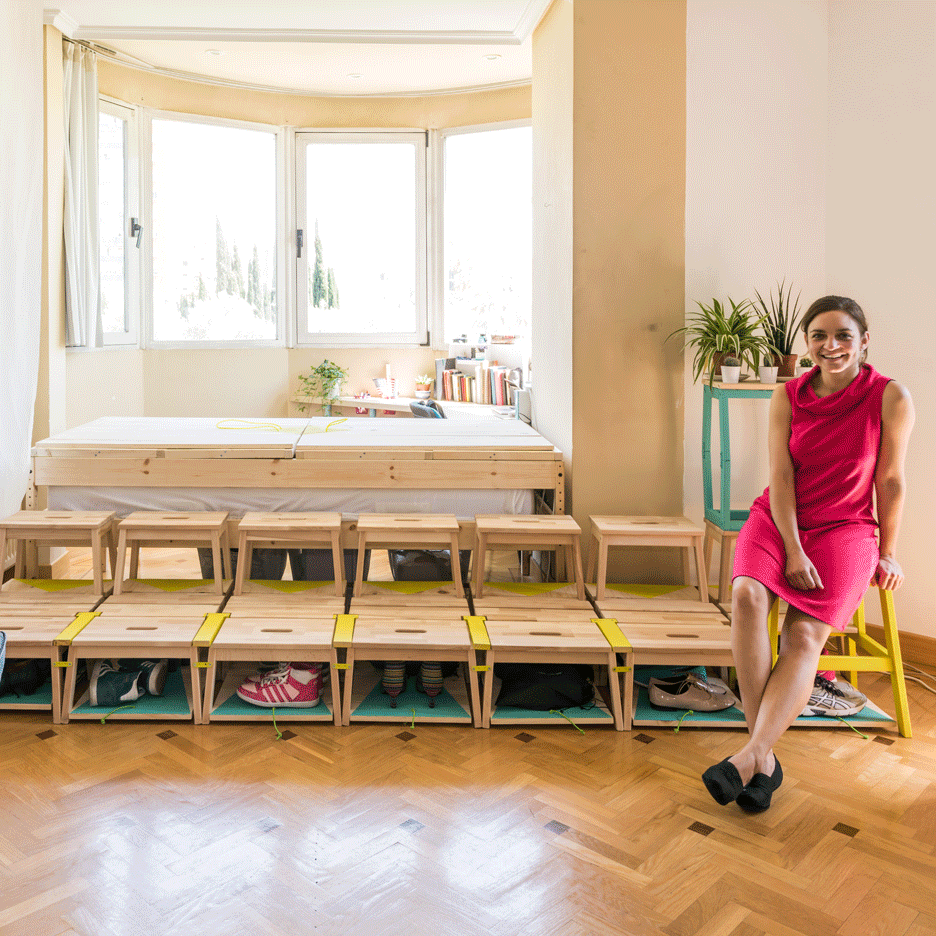
Spanish studio PKMN Architectures – which later split up, with three of the founders reforming as Enorme Studio – saw this as an opportunity to rethink the way that living spaces function.
By both adapting the old furniture and inserting bespoke elements, the architects believe they can transform these old rooms into functional living spaces that also remind residents of their family history.
On show as part of the Oslo Architecture Triennale 2016, the project is entitled Home Back Home.
It involves analysing and developing solutions to a series of case studies, as a means to develop prototypes that could potentially be replicated in various different situations.
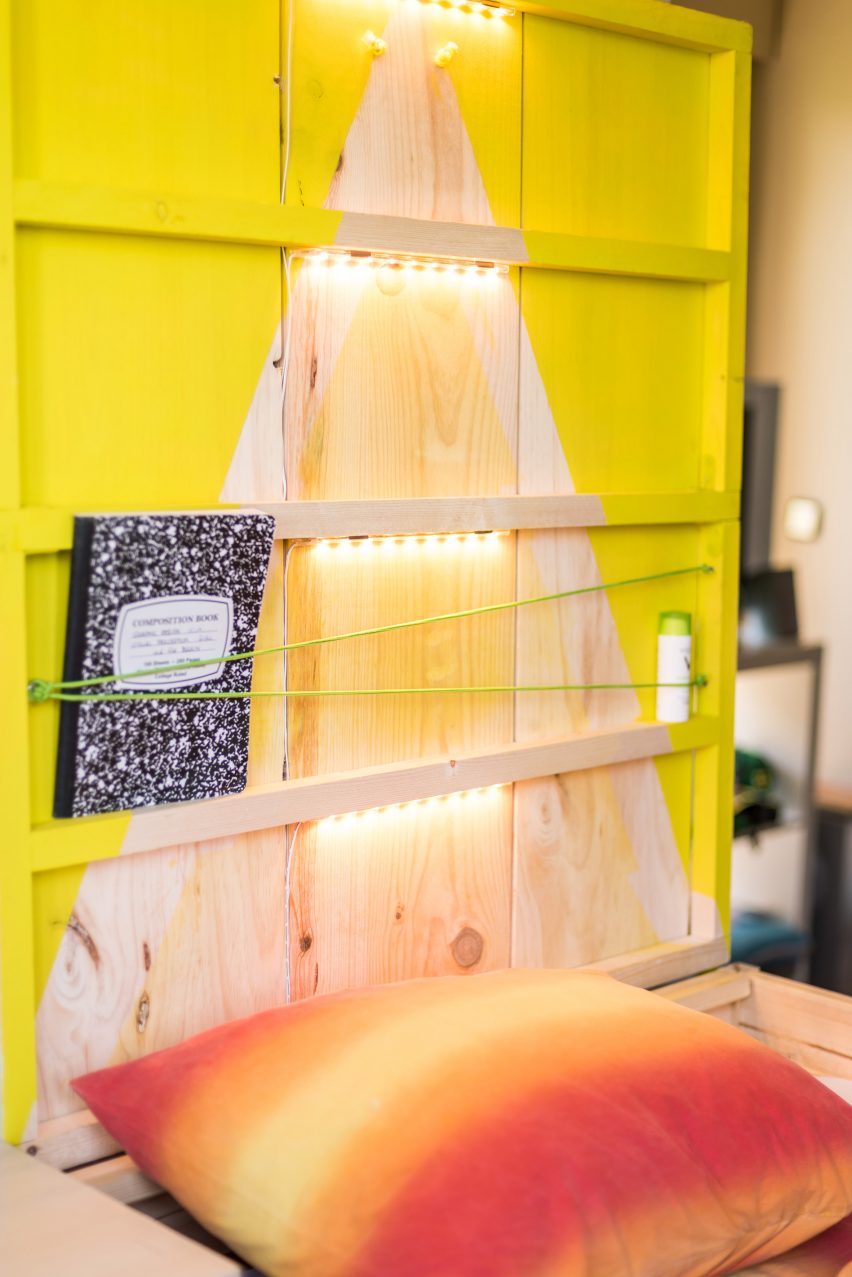
"Home Back Home is a platform for analysis, monitoring and treatment, through prototyping, of housing situations generated by de-emancipation and the coming back home journey," said the Madrid-based architects.
"To de-emancipate doesn't necessarily mean a complete loss of independency, but keeping a certain amount of autonomy may involve an effort in negotiation and the establishment of certain agreements," they continued.
"Home Back Home proposes to design and build physical prototypes that can become a representation of some of those reached agreements, as a result of a dialogue process through operations of furniture remastering."
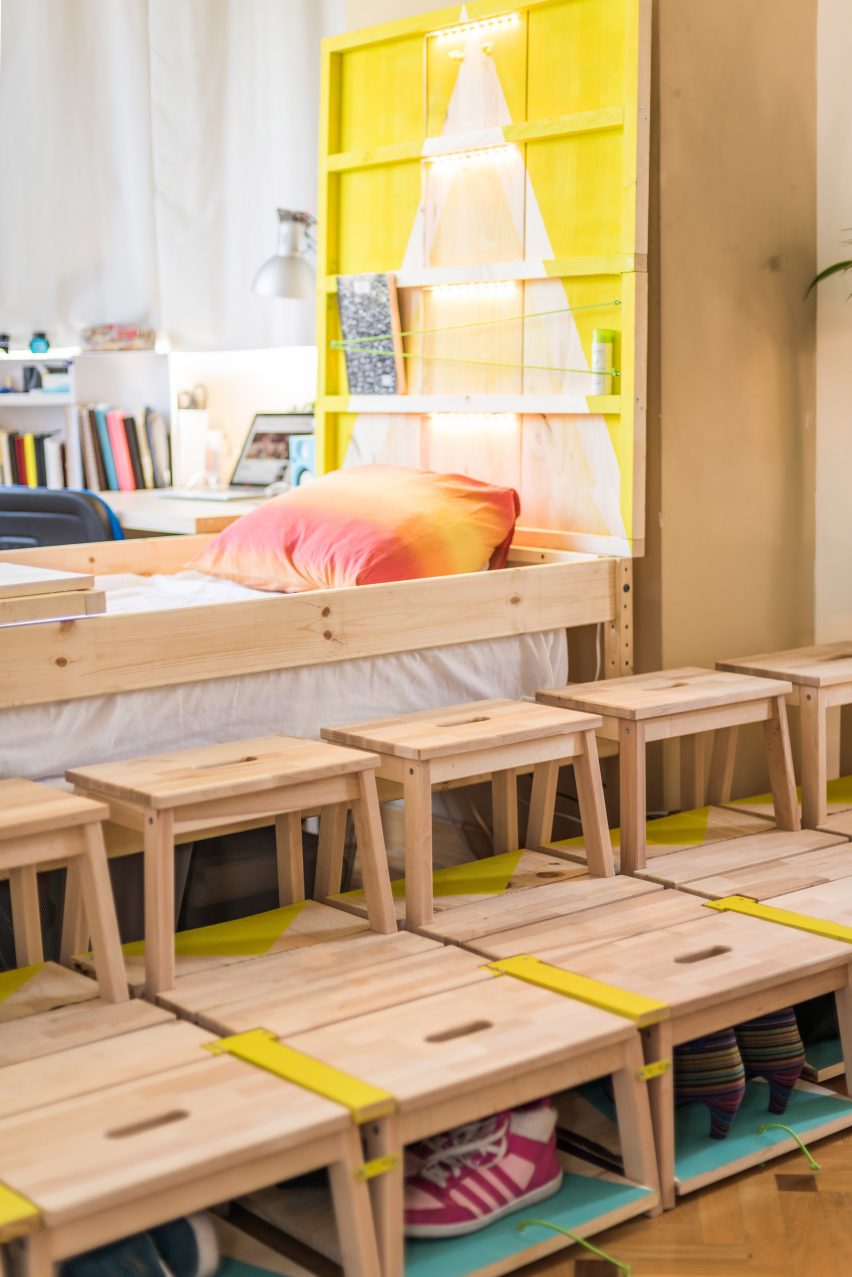
For the Triennale exhibition, Enorme Studio architects Carmelo Rodríguez Cedillo, David Pérez García and Rocío Pina Isla are exhibiting three completed case studies.
The most recent was a project for PhD graduate Ana Mombiedro, who had returned home to her parents' house after travels abroad. She no longer had a room of her own, so had to colonise parts of the living room.
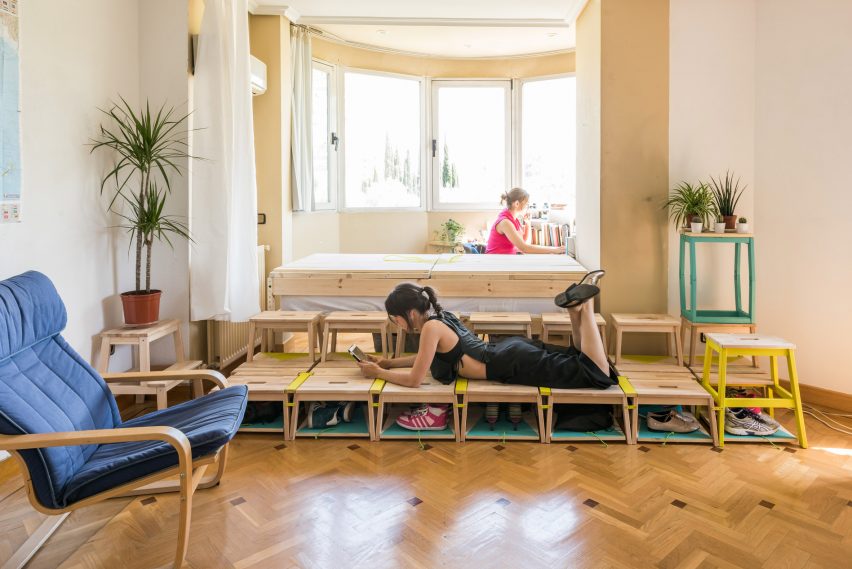
"The challenge was not to compromise the social and celebratory nature of the main communal area in the house," said the architects.
Thanks to a sponsorship from Ikea, the architects were able to add a series of bespoke furniture elements through a process of customisation, also known as Ikea hacking.
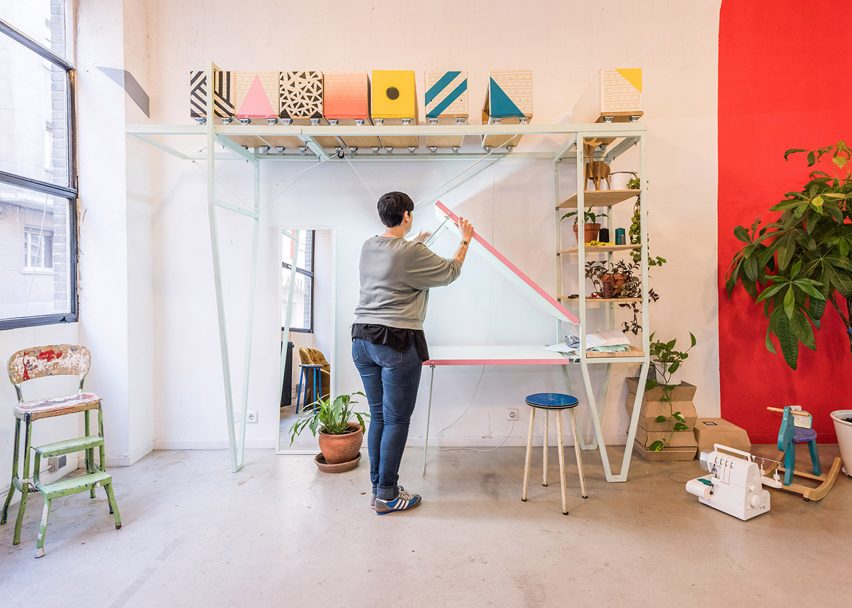
Ikea's Bekvam stool was used to create a raised platform with storage areas tucked away underneath, while other additions include a fold-up bed and a study area that can be concealed behind a curtain.
The two older projects follow similar thinking. For Denudai Claudio Cornejo, who works in fashion, the architects used an old table and shelving unit to create a flexible sewing station.
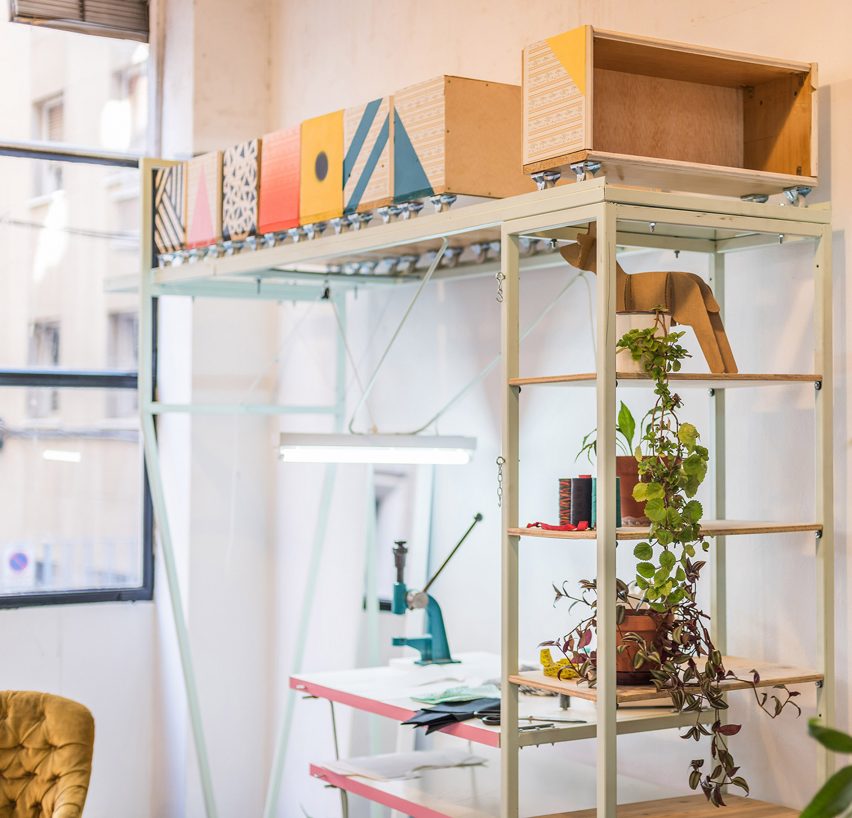
And for young architect Del Montón Caño, the architects designed a custom shelving unit where she can store her new belongings without disturbing her childhood possessions.
For all three case studies, the architects have created illustrated instruction manuals to make them easy to replicate.
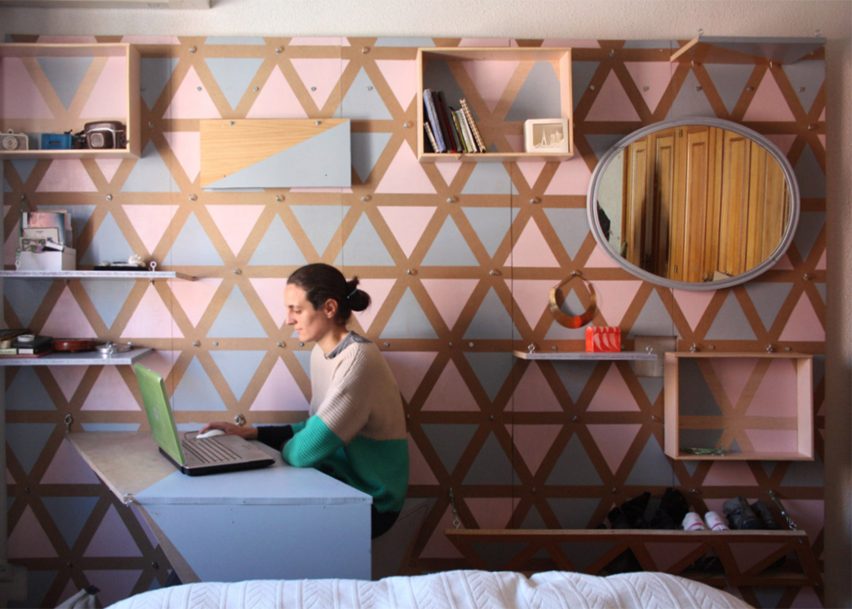
Home Back Home is one of the 33 projects that make up On Residence, one of the two main shows of the Oslo Architecture Triennale 2016, located at the Norwegian Centre for Design and Architecture.
It builds on the growing trend for Ikea hacking – a movement for customising the Swedish homeware brand's modular furniture, which has also extended into offices and restaurants.
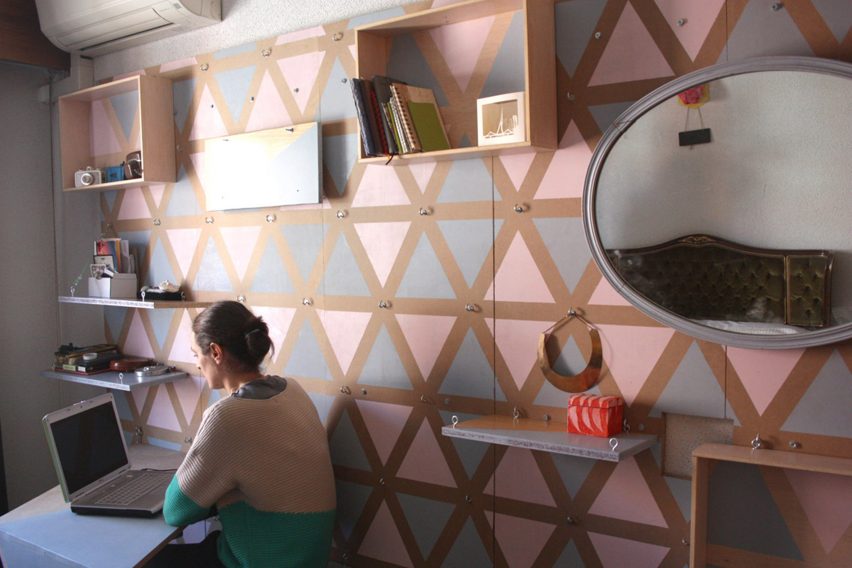
PKMN Architectures – whose previous projects include an apartment with moving walls and a leisure centre part-submerged beneath a plaza – started working on Home Back Home in 2014.
When the studio split up, former partner Enrique Espinosa Pérez launched a new office called Eeestudio, and the remaining three launched Enorme Studio. Both studios will continue to work on this project, and hope to carry out more case studies in the future.
Photgraphy is by Javier de Paz García.